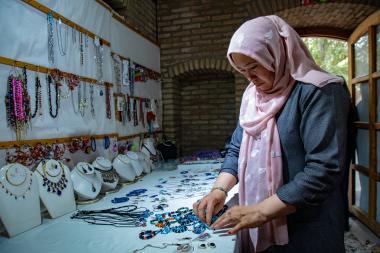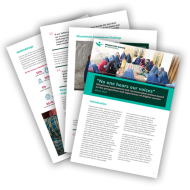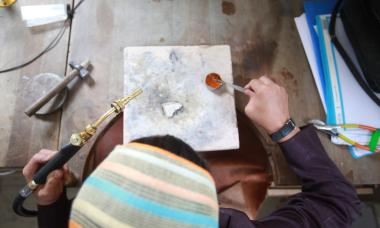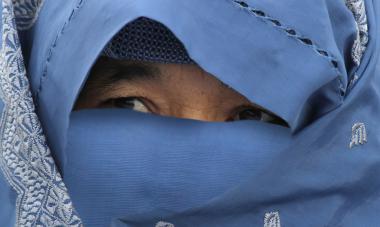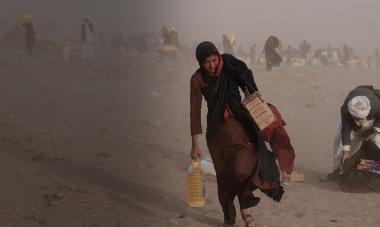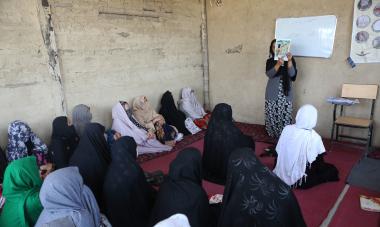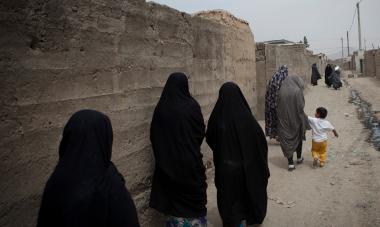Afghanistan has faced decades of conflict, economic decline and insecurity. After the de facto authorities took control in August 2021, most international funding was cut and the economy collapsed. Nearly 90% of the population now faces poverty. Women are barred from most jobs, further straining households and the economy. Climate disasters like droughts and earthquakes have worsened food insecurity, with 14.8 million people facing crisis levels of hunger. Nevertheless, when equipped with vocational and economic tools, Afghan women demonstrate the power to change their lives.
About Afghanistan:
The social and economic outlook for Afghan women has worsened:
- Millions of women in Afghanistan have little or no access to healthcare.
- Women are prohibited from working in most sectors, cutting off vital income for families.
- Girls are barred from attending school beyond 6th grade, and universities are closed to women.
- Women face severe restrictions on movement and are often not allowed in parks, gyms, or other public venues.
- Intimate Partner Violence, early and forced marriage, is prevalent.
Our Work in Afghanistan
Despite the upending of women’s access to education, employment and personal freedoms, Women for Women International’s locally led team continues to deliver in areas where permission has been granted. We still see remarkable fortitude among the women we serve as they strive for self-sufficiency and financial independence.
“Today, I feel like a fortunate person. I have my own business, and I have become a self-sufficient woman."
-Nasima, Stronger Women, Stronger Nations Participant
Since 2002, we have operated in five provinces of Afghanistan. Participants of our Stronger Women, Stronger Nations program (SWSN) receive vocational training for jobs like tailoring and knitting, animal husbandry, participating in savings and self-help groups, and learn to invest in their businesses as they receive stipends. Throughout this curriculum, they receive an income and grow their own savings. They are also trained by local staff on how to influence decision making in their households, and support social change in their communities.
Our Impact
- Since 2002, a total of 138,726 Afghan women have been reached.
- 1,984 women graduated in 2024.
- The percentage of women involved in decisions about family planning doubled during the course of the program, from 32% at the start to 65% at graduation.
- Since inception, our local team has reached 6,677 men through our Men’s Engagement Program.
Ferhana’s story
Four years ago, Ferhana graduated from the Stronger Women, Stronger Nations program in Afghanistan, and it changed everything for her. Women for Women International supported her burgeoning jewellery business, so that she could set up a shop. It provided a vital source of income since Ferhana is the sole breadwinner for her family. Later, she had the confidence to persuade the authorities to allow her to keep the shop open. Read more about Ferhana’s story here
“I hope that we, as Afghan women, keep enduring and showing up for each other. We have the power to change things and I will do whatever I can to keep my shop running so that my children and also other women who work with me see a future for themselves.”
-Ferhana, Stronger Women, Stronger Nations Graduate
Report: No One Hears Our Voices
In interviews, Afghan women and women’s rights organizations describe their experiences in Afghanistan and set out their hopes for the future. In their own words, Afghan women in the report call for women’s rights, inclusion in public life, urgent economic relief, and for the international community to step up in solidarity with them.
Report: “Where I Am Going and Where I Am” - The personal and professional opportunities and challenges facing Afghan women human rights defenders outside Afghanistan.


